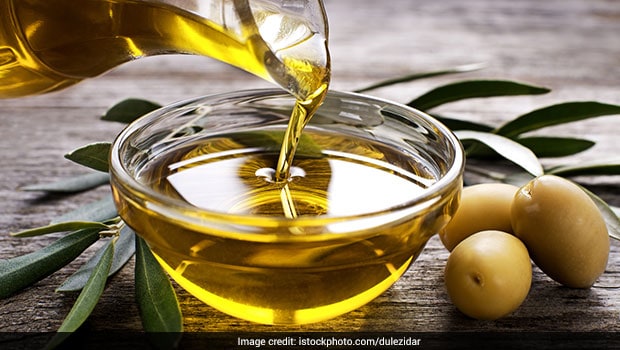Oil and butter are widely used in kitchens across the world to come up with a variety of mouth-watering delicacies. They impart taste and flavour and are not entirely interchangeable. Asian cooking uses many different types of oil from peanut to sesame, Western style cooking, on the other hand, relies a bit more on butter and sometimes olive oil. With growing attention towards health and nutrition, people are becoming more and more aware about the kind of ingredients to be used, and in what quantities. People often wonder if butter is better than oil, or vice versa. Both have varying uses when it comes to cooking sweets or savoury dishes. So which one is healthier? Let us begin by understanding the difference between the two.
Oil is generally comprised of unsaturated fats, i.e. mono-unsaturated and poly-unsaturated, whereas butter (commercial butter, not the white butter we often take out at home) has a salty taste and has more saturated fats in form of butterfat and milk protein, and also some amount of water in it. Although butter contains saturated fats but these fats are heart-healthy while the poly-unsaturated fat (omega 6 fatty acid) in oils are unwanted fats which may cause inflammation, and should be avoided.

Oil is generally comprised of unsaturated fats, Photo Credit: Istock
“I believe one should try and get all the essential fatty acids in small quantities. My formula is three teaspoons of fat a day for cooking: One teaspoon from ghee or butter etc., two teaspoon from any vegetable oil (sunflower, safflower/rice bran etc.) any seed oil (sesame seed, flaxseed, mustard etc.) says Shalini Manglani, Bangalore based Wellness and Weight Management Expert.
Shalini believes that this way you can get a combination of unsaturated and saturated fats. “People with heart issues could reduce the amount of saturated fat. All fats have their benefits and can be rotated and used in one’s kitchen. Butter, white butter, cream and ghee are high in Vitamin A and B12 and should be a part of one’s total fat intake, but since they, like coconut oil, are saturated fats they can be used in limited quantities. When it comes to dietary fat, what matters most is the type of fat you eat. Contrary to past dietary advice promoting low fat diets, newer research shows that healthy fats are necessary and beneficial for health.”
Butter v/s Olive oil
Olive oil is considered one of the healthier oils as it contains unsaturated fats. But how does it compare to Butter? Experts say that the presence of poly-unsaturated fats in Olive oil can lead to inflammation while Butter which has a higher amount of vitamin K2 may be better for heart health. A recent study has suggested this too. “The new study analyzed nine papers that included more than 600,000 people and concluded that consuming butter is not linked to a higher risk for heart disease and might be slightly protective against type 2 diabetes.” says study author Dr. Dariush Mozaffarian, dean of the Friedman School of Nutrition Science and Policy at Tufts in Boston.
In addition to this, it is a known fact that Butter is safer for high heat cooking as olive oil is not heat stable and easily gets oxidised in high temperatures. Deep frying using Olive oil as medium should be avoided, as suggested by experts.

Olive oil is considered one of the healthier oils.
Fats are important in our diet as they provide energy to us for functioning, but should be used carefully and in limited amounts to prevent obesity and other known harmful effects. Whatever you pick, make an informed choice and include them in your diet accordingly.